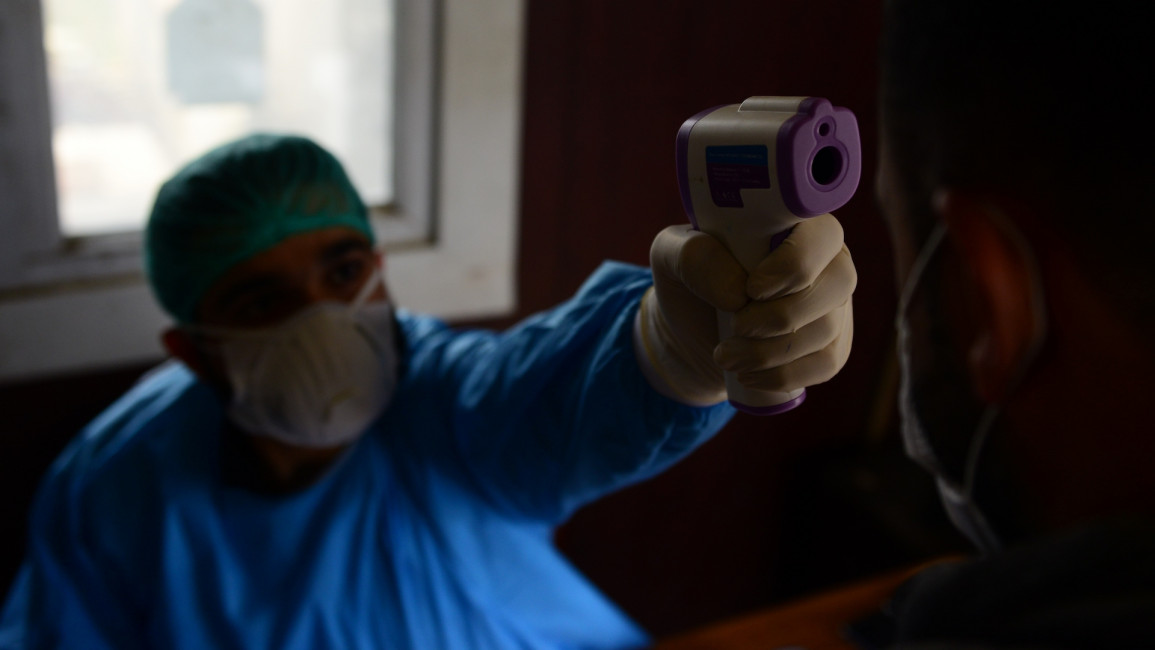Defying the odds: 103-year-old Iranian woman survives after contracting coronavirus
The unnamed woman had been hospitalised in the central city of Semnan for about a week, IRNA news agency said.
But she was "discharged after making a complete recovery", Semnan University of Medical Sciences head Navid Danayi was quoted as saying by IRNA late on Tuesday.
The woman was the second elderly patient in Iran to have survived the disease.
The other was a 91-year-old man from Kerman, in the southeast of Iran, the news agency said.
After being sick for three days, he recovered on Monday despite having pre-existing medical conditions including high-blood pressure and asthma, it added.
The report did not say how the pair were treated.
Read also: Iranian, Saudi clerics believe coronavirus outbreak signals the 'near end of time'
Since Iran announced its first deaths on 19 February, the novel coronavirus has spread across the country's 31 provinces and killed more than a thousand people.
Iran is yet to impose any lockdowns but officials have repeatedly called on the public to stay home for the holidays.
On Wednesday, Deputy Health Minister Alireza Raisi urged Iranians to remain at home in the lead up to the annual Nowruz spring festival.
"Now everyone knows about this disease, and what is very strange is that some don't take it seriously," Raisi said in a televised news conference.
"If people help, we can control it, and if not, then expect it to last more than two months."
Raisi said 1,192 new infections were confirmed in the past 24 hours, raising the total to 17,161.
Tehran province had the highest number of new cases with 213.
Isfahan in central Iran was second with 162, followed by East Azerbaijan in the northwest with 84.
The deputy minister complained that in Tehran "bazaars are busy" and that people travel in their cars despite warnings not to do so.
"Just be patient for these two weeks so that, God willing, we can overcome this virus," Raisi said.
Twitter Post
|
The country's New Year holidays start on 20 March this year and will last until early April, with many Iranians traditionally travelling to popular spots such as northern provinces.
On Tuesday, reports confirmed researchers at the Sharif University of Technology in Tehran created a computer simulator to test different scenarios related to the spread of COVID-19 across Iran.
Researchers estimate Iran will reach the peak of the epidemic not in one week but rather at the end of May, by which point as many as 3.5 million people could die.
The COVID-19 virus, which was first detected in China's Wuhan in December, has killed more than 8,231 people worldwide, while over 203,691 infections have been confirmed.
The majority of those that infected with corona experience only mild or moderate symptoms, including fever and a dry cough.
However, concerns have been raised for the elderly and those with existing health issues, who have reportedly suffered with more severe complications, including pneumonia and even death.
The World Health Organisation this month estimated the novel coronavirus kills 3.4 percent of all those infected.
But for people aged over 80 the fatality rate was 21.9 percent, according to a report the WHO carried out with the Chinese authorities.
As of yet, there are no known treatments for the virus, though more than 82,866 have already recovered from the infection.
Read also:'Drink cow's urine, shower with dung': Hindu group battles coronavirus with bold bovine brew
The World Health Organisation has confirmed those who experience a milder version of the virus recover in about two weeks, while those with more severe illness may take three to six weeks to recover.
As the pandemic continues to spread across the world, dozens of research groups around the world are racing to create a vaccine while governments continue to impose strict restrictions or "lockdowns" to help stem the spread of the virus.
Follow us on Facebook, Twitter and Instagram to stay connected



